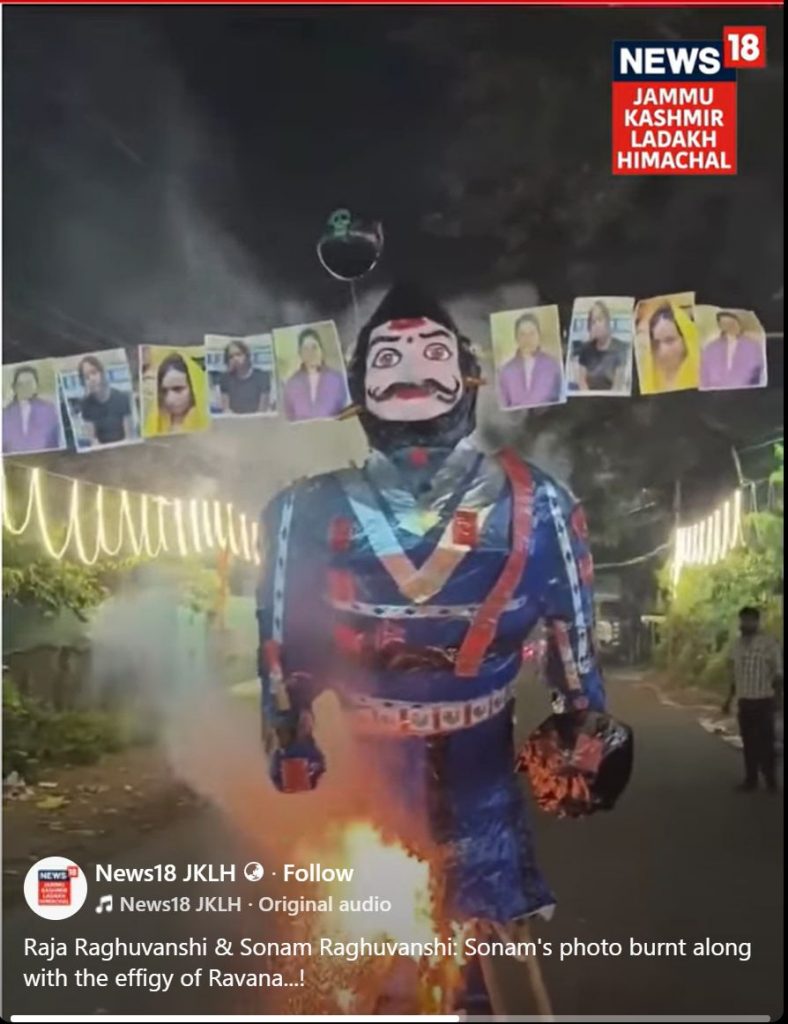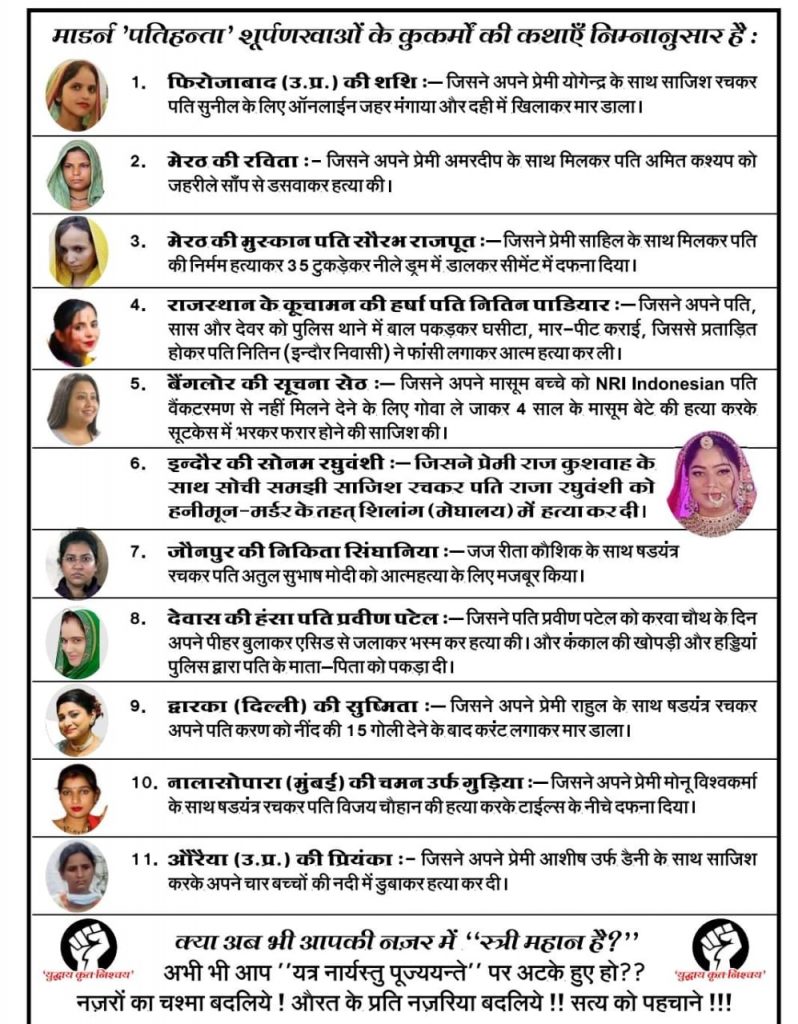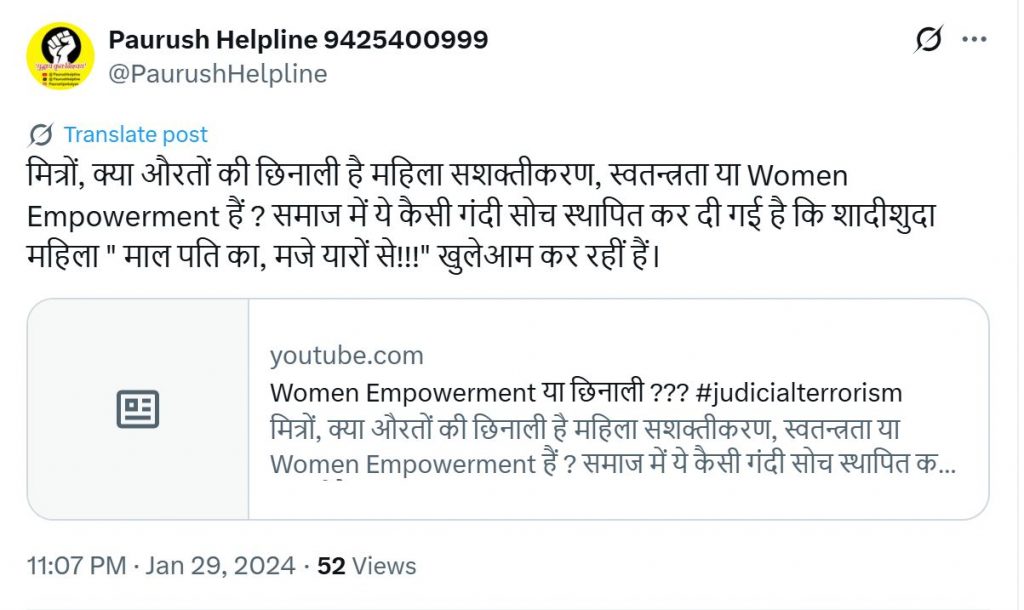While burning effigies of mythological character Ravana on the occasion of Dussehra, on October 2, 2025, residents of Bhopal also burnt photos of women accused of committing crimes against their husbands, defying a High Court order.
The women whose images were displayed among the ten faces of Ravana included Sonam Raghuvanshi — accused of murdering her husband in Shillong during their honeymoon —, Muskan Rastogi from Uttar Pradesh’s Meerut — who, along with her lover, killed her husband and dismembered his body — and Nikita Singhania — wife of engineer Atul Subhash who took his own life and blamed the Nikita for torture.
Ahead of Dussehra, Sonam Raghuvanshi’s mother had filed a petition in the Madhya Pradesh High Court against an organisation named Paurush (People Against Unequal Rules Used to Shelter Harassment) in Indore, which planned to burn effigies of Sonam Raghuvanshi on Dussehra. The court had banned the burning of such effigies, considering it a violation of women’s fundamental rights. Despite this, photos of the women were burnt with the Ravana effigy.

Crimes Against Men
Paurush wanted to use images of 11 female criminals who committed heinous crimes, such as the murder of their husbands and innocent children, to the Ravana effigy to mark it as symbolic. The Indore-based organisation aims to raise awareness about the rising number of crimes committed by women in Indian society. At the beginning of Navratri, the collective created and circulated a poster on social media, listing the names of the 11 women and the charges against them.
In a post dated September 22, Paurush wrote, “The purpose of this event is to highlight that even if women commit heinous crimes, including the assassination of Prime Minister Rajiv Gandhi, the law does not punish them with death. In Indian history, no woman has been sentenced to death since 1955. These 11 women have not been punished either.” This poster read, “Change your attitude towards women.”

The organisation fights for men’s rights. On September 28, PAURUSH even posted a video, after the High Court banned burning effigies, urging people to come to meet the Indore police commissioner in Palasia and seek permission to burn the effigy.
Further investigation into this organisation revealed that it is run by Ashok Dashora and his team and has been active for about five years. Their YouTube channel contains over 100 videos. In some videos, Dashora describes women’s freedom as a negative aspect of society. Here’s one such post from January 29, 2024.

In ancient times, in some cultures, it was customary to publicly humiliate and shame criminals. This included flogging them in the streets or pelting them with stones and burning effigies is no different. The High Court explicitly prohibited the burning of effigies of Sonam Raghuvanshi or any other individual. Despite this prohibition, the images of the women with the Ravana effigy were burnt, directly violating the orders of the judiciary and the court of law. Disobeying a court order poses a serious challenge to maintaining law and order and sends the message that people are ignoring judicial directives.
Publicly burning an effigy of a person, especially during a festival, defames that person and their family. This act represents a clear disregard for the law, a violation of a citizen’s fundamental rights, and public humiliation of the individual. In this case, it also seeks to shame women for committing crimes against men (not just committing crimes) and make such cases, which are exceptions, seem like commonplace occurrences.
Independent journalism that speaks truth to power and is free of corporate and political control is possible only when people start contributing towards the same. Please consider donating towards this endeavour to fight fake news and misinformation.




